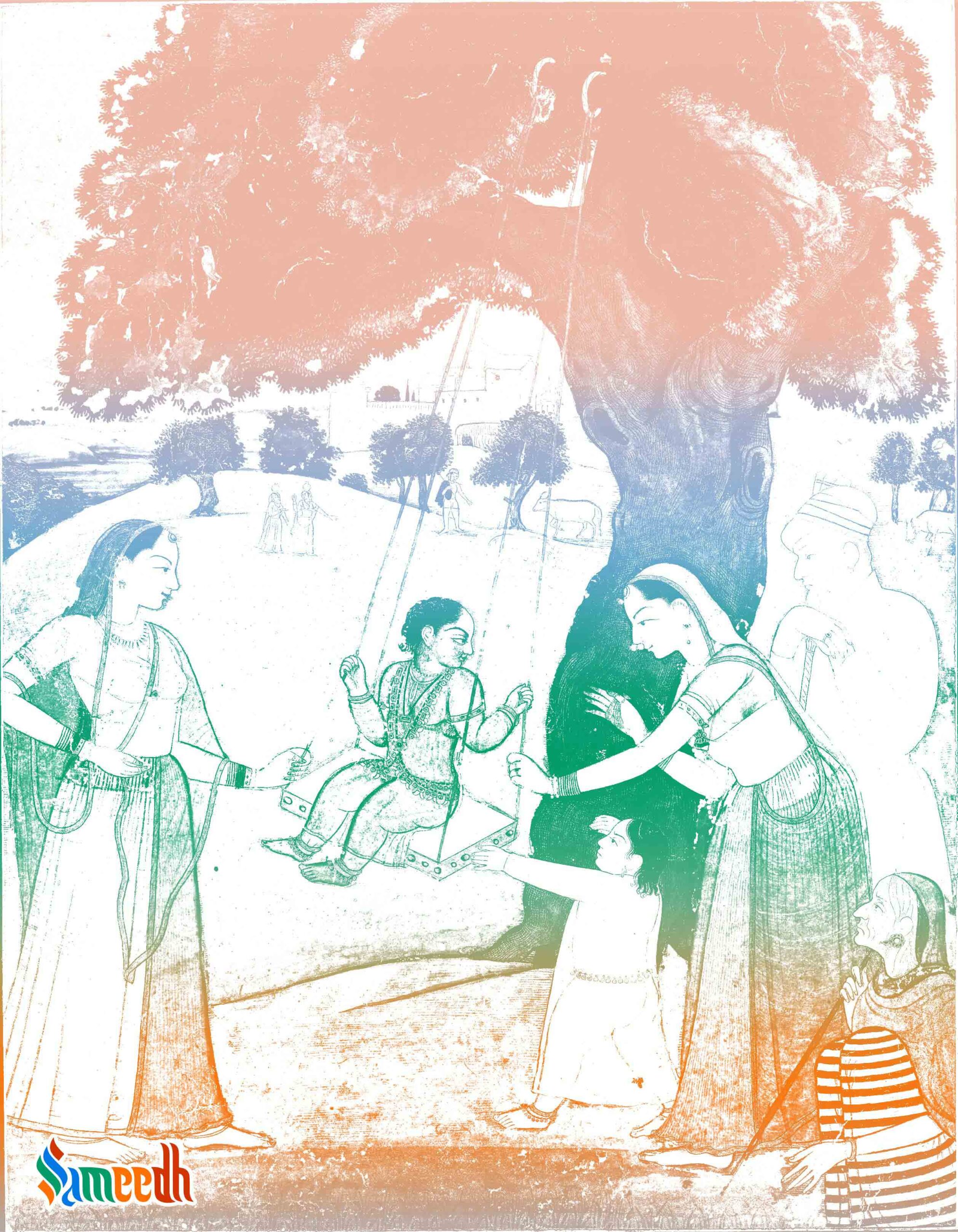The significance of the foster father of Krishna, reincarnation of the Hindu god of preservation.

Image Source: Indischer Maler, British Museum
EARLY LIFE
Nand was the foster father of lord Krishna, the eighth reincarnation of the Hindu god of preservation, Vishnu. He was a commander of a Kshatriya tribe, born to Parjanya Maharaj, the ruler and leader of an area called Mahavan Braj. His father was the son of a Yadava king called Devamida. Nand descended from an ancient tribe of Indian people who had a king named Yadu. In the Yadava tribe, the most crucial location was that of Mandaladhish, in Gokul, which fell under Nand’s leadership and jurisdiction. Nand along with his wife Yashoda, the Yadava queen, brought up lord Krishna and Balram as their own children.
Vasudev, a beloved, trusted and close cousin of Nand from the Yadada dynasty had given birth to lord Krishna as his eighth child. But that child was in danger as Vasudev’s brother-in-law or his wife, Devaki’s brother, was an evil tyrant who wanted to kill their children because of a prediction. To keep Krishna safe, he sent him over to his cousin for him to bring up Krishna safely till he is mature and can fend for himself. The relation of Vasudev and Nand was established in Bhagavat Purana, an ancient religious Hindu scripture
LIFE EVENTS AND CONTRIBUTION TO SOCIETY
Nand’s identity as a foster parent is what makes him a great soul. Nand and Yashoda had a child of their own, a daughter who was born almost at the same time as Krishna. But because Vasudev wanted to save his son from death, he requested Nand to swap his daughter with his son. To give away one’s own offspring is a great sacrifice which no parents could bear to make. Furthermore, to bring up Krishna as their own son was indeed an act of devotion. The epitome of kindness unfolds when one understands how Nand and Yashoda would have brought up any child as their own even if it was not the avatar of god himself. Such was their selflessness and determination towards doing good and the ability to give in abundance without receiving anything in return.
Their own daughter was sent over to Devaki and Vasudev. When the unjust king Kans came to kill their daughter, assuming it was Devaki’s eighth child, the daughter took the form of the goddess Durga and warned him that his end was near. Nand also had to surrender the right to bring up his own daughter and instead father Krishna and Balaram.
Many names such as Nandanandana, Nandraj, Nandlala etc were given to Krishna signifying that he is the son of Nand. It also depicts how lord Krishna’s identity sometimes presided with that of his loving father’s.
LIFE AFTER MAJOR EVENTS
The highlight of Nand’s life was being a parent to lord Krishna. He is foreverly remembered as the man who brought up Krishna and Balram with such affection and care that they went on defeating evil entities. Although those boys were destined to achieve greatness, Nand as a father nurtured them throughout their journey.
Today, there are various memorials made in the memory of the devout man who brought up lord Krishna. One of them is situated on the banks of the river Yamuna named Nand Ghat. Another is the Nand Bhavan or house of Nand where Krishna spent his early childhood. This is situated in Mathura in the Indian state of Uttar Pradesh.
LIFE LESSONS
The altruistic and self sacrificing nature of Nand is worth admiring and inculcating. He did not exhibit such compassion towards bringing up Krishna in order to be rewarded or even acknowledged. He did so out of his inherent warmheartedness.
